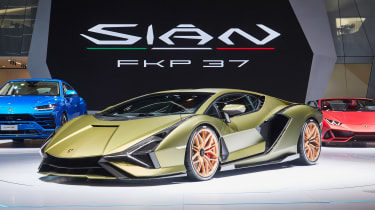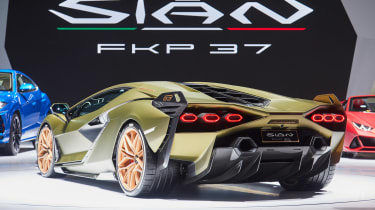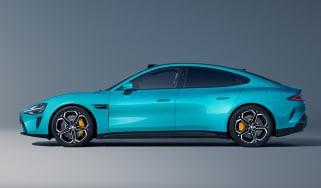What is a supercapacitor hybrid?
The hybrid performance car is no longer an oxymoron. Here’s how manufacturers are using this new tech to make them better, not just greener
The supercapacitor might sound like science fiction, but while it’s yet to be used on a series production car, development has progressed to a point where we’ll see it in performance cars in the next 12 to 24 months. Lamborghini is one such manufacturer that has been working to integrate a supercapacitor hybrid system into its supercars, revealing the low-volume Sian last year that will debut the technology later this year.
It works in a similar fashion to a mild-hybrid system, but rather than storing electricity inside a battery, it’s stored in a supercapacitor, which is similar to a battery as it holds electricity but is able to expel and replenish it much faster. Rather than metering out electricity slowly, supercapacitors deliver all their electricity to the powertrain within a few seconds, but then replenish equally quickly via regenerative braking.
When assisting a 700bhp+ combustion engine, a small mild-hybrid system would have little to no effect in augmenting it even at low rpm, and without any forced induction to prime there is little advantage in a system so, uh, mild. Lamborghini’s solution is this more powerful supercapacitor, which will have a larger impact on performance, but without the extra weight of a more substantial hybrid system. This will be ideal on track, or twisty roads, but how much effect the system has on an autobahn is less assured, when the brakes are not in use to recapture more energy when the supercapacitor is out of juice.
Supercapacitor performance cars
Pro: Lightweight, quick to expel but also recharge
Con: Very new technology, expensive and dependant on correct usage patterns






